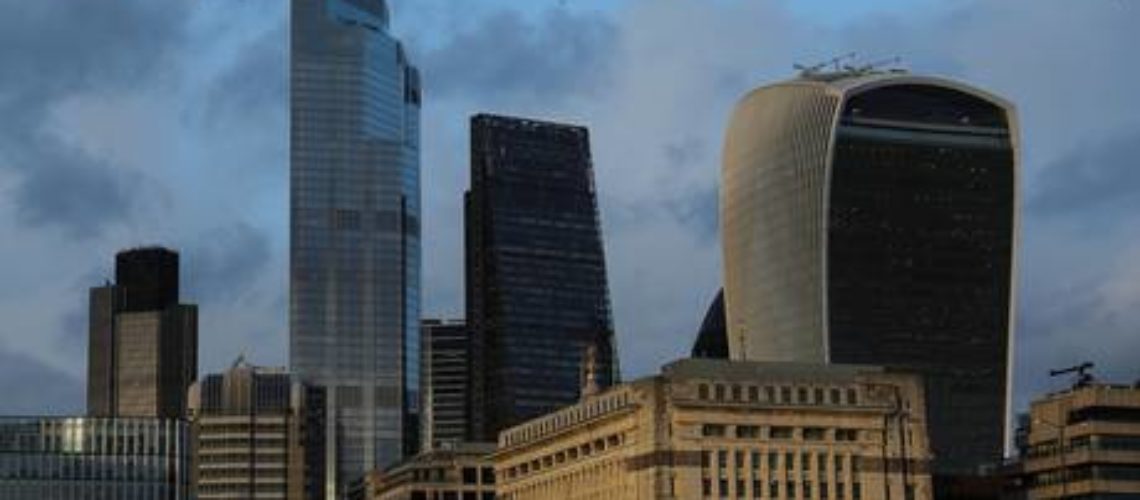"It gave me a beating - and experiences for life. I wouldn't have had it any other way."
This is how Frederik Mørkeberg summarizes his seven years as an equity trader in London, where the last four years (2005-2009) were spent at Goldman Sachs. He describes it as "being in the eye of the storm during the financial crisis".
44 year-old Mørkeberg moved briefly to a job at a family office in Oslo after his years in London, and since then, he has continued in the financial sector as an equity trader in Copenhagen, starting at Carnegie and then moving to SEB. He worked at SEB for eight years before leaving in October last year.
Mørkeberg had managed to get a small insight into the financial sector from his part-time job at Nordea while he studied at Copenhagen Business School in the early 2000s. Before he graduated from Copenhagen Business School, he moved to London in summer 2002 to complete a 10-week internship at Deutsche Bank.
"In reality, it was a 10 week long job interview. In that class, I became number one and my friend Jan became number three. We did well. I think that it helped that we were a few years older, and that I had leadership qualifications from the army. Overall, the Scandinavians did well, as here in the Nordics we teach young people to think for themselves. It gives them more independence," he says.
Professional career in London
His good performance at Deutsche Bank drew attention to and opened doors for Mørkeberg. The young Dane became a market maker at Credit Suisse in 2003.
"I started to train as a market maker for Nordic equities. As well as intense theoretical learning, it also meant starting from the bottom by getting coffee, sandwiches, newspapers and so on for the other traders - it was an exercise in following basic orders. You don't win any popularity contests by getting a simple coffee order wrong - if you can't do that right, how are you supposed to learn to handle shares? We wouldn't do that at home in Denmark - a student would tell you to get it yourself, if you asked them to get you coffee. London has a much more hierarchical system, with a lot more humility," he says about the first steps in his career.
After a few years at Credit Suisse, he got a phone call from Goldman Sachs in 2005. They were planning to build a department for small and midcap European shares, and the idea was that Mørkeberg should be responsible for the Nordics.
"Among traders, Goldman was seen as the world's largest hedge fund, and I thought, it would be a huge challenge - so I said yes."
"It was full steam ahead from the get-go, and I was setting daily prices for about 90 shares. Before the financial crisis, there were different limits for how much equity you were allowed to trade, and I was brought in to trade with all of their European clients. It was intense, it was fun, and you needed to tread carefully to avoid stumbling," he says.
"The biggest challenge was being able to come back and not be scared off after getting a beating. Market making is, metaphorically speaking, a beautiful mixture of a beauty pageant and a brawl."
The eye of the storm
The establishment of the new department at Goldman Sachs was going to plan, and quickly became one of the best of its kind in Europe, Mørkeberg says. But after a few years, things started to fall apart because of the financial crisis.
Mørkeberg was asked whether he wanted to change lanes and work with European banking equities. The crisis was intensifying, and Goldman Sachs needed a strong gatekeeper for the sector that was most in focus.
He started this role in early 2007. Initially, the team was five people, but this was quickly reduced to three market makers.
"As the crisis became clearer, volatility and activity soared. My team leader was French, and for people with a French passport, it is apparently a law of nature to be out of the office for at least two hours at lunchtime. The other trader worked with Asia and New York and was active at other times of the day. I ended up sitting there trading shares alone a lot - there were often some very exciting moments," says Mørkeberg.
"We worked 13-14 hours a day. Of course, that had a personal price. It impacted my social life, and funnily enough, my girlfriend got homesick. For people who don't understand, it seems crazy. If I, for example, went to the toilet at work, two minutes wouldn't go by before someone knocked on the door to ask me something. There was rarely time for small breaks," he says.
While panic in the market escalated, the pressure on the bank sector, and Goldman Sachs, grew.
Mørkeberg calls the financial crisis pressure challenging, but highlights that there was still a very professional atmosphere at Goldman Sachs. There were lots of big personalities, and the team spirit was enormous. They kept their spirits up by playing practical jokes, and you learnt a huge amount very quickly, he remembers.
Always on
By Summer 2008 the crisis was in full bloom. Nevertheless, the employees at Goldman Sachs were told to take their holiday, and Mørkeberg went on a romantic late-summer break in Miami.
"On the holiday I was constantly being called on my Blackberry. After three or four days, my girlfriend got so tired of hearing the phone that she threw it in the pool. We went out to Tampa for the day, and when we got back to the hotel, a new Blackberry was waiting for me - set up and everything. They had figured out that it was gone when they couldn't get into contact with me," he says, adding:
"Something new was always happening. I think Lehman Brothers had gone down by the time we got back."
Lehman Brothers collapsed on September 15, 2008, and the spectacular downfall sent shockwaves through financial systems across the world. Since then, this day has come to be known as the day that everyone understood how serious the crisis was. A long period of government bailouts and controlled banking closures started.
One of the last to be fired
At Goldman Sachs, the rest of fall 2008 went by in a financial crisis fog. Mørkeberg was one of the last people on the entire trading floor to be fired from the company in January 2009.
This post originally appeared on AM Watch.




